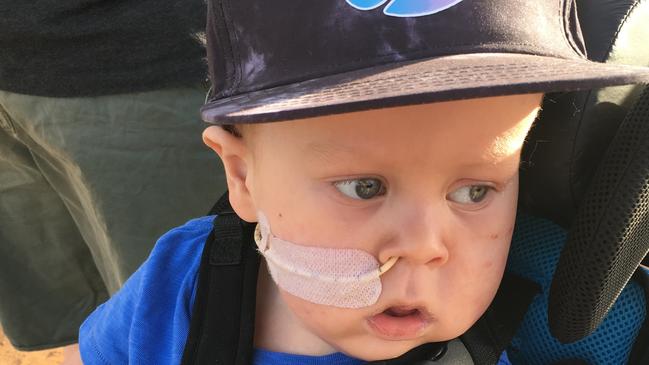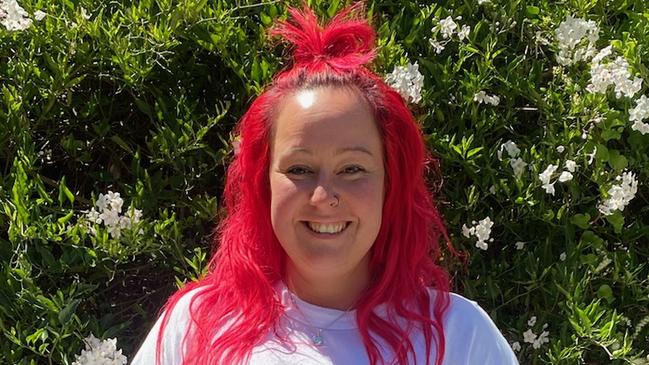Babies at risk because of Australia’s lack of newborn screening
Nate Primmer would still be alive today if Australia had a simple $10 test for life threatening diseases at birth. Now, his mother is speaking out to call for change.
National
Don't miss out on the headlines from National. Followed categories will be added to My News.
If newborn screening was offered at birth, tiny Nate Primmer would still be alive today.
At age seven months Nate lost the ability to sit up and move his head and he tragically passed away before turning three but his death could have been prevented by a simple $10 test.
A lifesaving medication would have allowed Nate to lead a normal life but he didn’t get it soon enough.
This was because Australia does not include genetic screening for Pompe disease in the regular heel prick blood test carried out on all children at birth.
“Its life and death, quite literally,” Nate’s mother Jenna Primmer said.
“The longer you wait, the more severe the damage and once it’s done, it’s done. The medication can’t reverse it, it can only stop it progressing,”

Pompe disease is an extremely rare inherited disorder caused by the build up of a sugar in the body’s cells that causes muscle weakness, enlarged liver, heart problems and breathing difficulties.
Nate was almost a year old by the time he was diagnosed and his health had deteriorated so much that muscle weakness meant he was unable to prevent fluids going down the wrong way into his lungs.
When this happened while he was sleeping one night in 2017 it claimed his life.

In the US and elsewhere children are diagnosed at birth and get almost instant access to a $25,000 per treatment lifesaving drug called Myozyme that stops the disease in its tracks.
Nate’s mother is campaigning to have a test for Pompe disease and other rare conditions included in the heel prick test to bring Australia into line with the US, Europe and Taiwan.
“It’s very fast moving from the start of the disease, so the quicker you get on to it (the medication Myozyme), the bigger the difference,” she said.
Former senior public servant Felicity McNeill who used to be in charge of the nation’s medicine subsidy scheme and who now chairs Better Access Australia said Australia screens for just 25 diseases at birth.
“The US is doing somewhere between 66 and 80, Europe plus 50. We are so far behind,” she said.
Without newborn screening it takes on average 90 days for sick children in the city to get a diagnosis, but it’s over 180 days if you happen to live in rural and remote Australia, Ms McNeill said.
For the small number of children diagnosed with Pompe disease each year that delay is deadly.
Vice President of the Australian Pompe Association Maddy Collicoat said the federal government sets out a list of conditions that should be screened for at birth and then it’s up to each state to adopt the recommendation and fund it.

Ms Primmer does not want any baby to ever have to suffer like Nate but she noted the failure to include the test in regular screening was also bad economics.
“Nate was in an ICU bed in Sydney which is about $8,500 a day for eight weeks and the year before Nate died he spent nine months in hospital if you’re looking at this from a financial or business point of view,” she said.
Pompe disease is so rare, there are fewer than 70 known cases in Australia and just three babies are born with the disease each year.
Originally published as Babies at risk because of Australia’s lack of newborn screening



